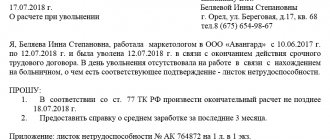Travel abroad of persons declared bankrupt may be limited by Russian law. However, the ban is not imposed in all cases; the court considers each situation individually. The restriction on crossing the border is initiated by the creditor or another party interested in the outcome of the case.
A citizen may submit a petition for temporary or early lifting of restrictive measures if there are valid reasons. Some debts are discharged in bankruptcy, so defendants have the opportunity to be relieved of overwhelming financial burdens.
- Is it possible for bankrupts to travel abroad?
- Who imposes and what is the duration of the ban on traveling abroad for bankrupts?
- How and where can you check for a sanction?
- How to remove travel restrictions: instructions
- Is it possible for a bankrupt spouse to travel abroad?
- Traveling abroad after bankruptcy of an individual entrepreneur
- What to do if the ban has already been introduced
- Is it possible to lift the travel ban?
- How can I obtain a temporary permit to travel abroad?
- Early lifting of the ban on traveling abroad
- Another option for removing restrictions
- How to legally write off debts
- After the bankruptcy procedure - is it possible to travel abroad when closing the case?
- Conclusion
Is it possible for bankrupts to travel abroad?
Every citizen of the Russian Federation can move freely throughout the territory of the state and beyond its borders. This right is enshrined in the Constitution and is valid if the movements of individuals do not contradict legislative acts and do not threaten public and state security. However, there is a rule that imposes certain restrictions on travel for the following categories of Russians:
- admitted to state secrets and other classified information;
- military personnel and those undergoing alternative military service;
- charged with criminal offenses;
- in respect of whom a court decision has been made to restrict freedom;
- who evade repayment of debt and fulfillment of other requirements specified in writs of execution;
- who filed a claim in court for recognition of their insolvency.
In the legislation relating to bankruptcy issues, there is no mandatory requirement to prohibit all bankrupts from traveling abroad. At the same time, if necessary, such measures can be taken against the debtor. In any case, the decision on this is made solely by the judges.
How to find out about a travel ban
If the ban order was not received at the postal address, this does not mean that it does not exist. Before you go on a trip, it is worth checking whether there are any restrictions on traveling abroad. This can be done via the Internet. All information is presented on the following sites:
- FSSP, where information about debtors is posted, on enforcement proceedings, seizures of property and restrictions imposed. On this site you can also print out a receipt for paying the fine, and then pay;
- Public services, where you can find information about unpaid fines and existing debt. If they exist, then travel restrictions will apply;
- Inspectorate of the Federal Tax Service.
But even if the bailiff’s website indicates that proceedings are underway against a specific person, this will not mean a ban on leaving. To begin with, it is worth clarifying exactly what restrictive measures have been taken, as well as what can be done to remove them. You can obtain information from the authority where this production is located (
Who imposes and what is the duration of the ban on traveling abroad for bankrupts?
Whether to restrict a person's movements is decided exclusively by the Arbitration Court. To do this, the process must be initiated by creditors or other persons interested in the outcome of the case by filing a formal written petition.
Bankruptcy of individuals
from 5000 rub/month
Read more
Services of a credit lawyer
from 3000 rubles
Read more
Legal assistance to debtors
from 3000 rubles
more
Write-off of loan debts
from 5,000 rubles/month
More details
Most lenders who have not received their money back on time fear that the debtor will try to escape responsibility outside the country, taking all their assets with them. By declaring a requirement to restrict a party’s movements within the territory of the Russian Federation, the participants in the process thus guarantee themselves safety from the final loss of the defaulter’s material benefits.

The bankruptcy law establishes a conditional time interval during which the prohibitive measure is in effect. When a court decision is made to declare the borrower bankrupt or a settlement agreement is signed, the restrictions will be lifted automatically.
How and where can you check for a sanction?
To check whether an individual is prohibited from traveling outside the state, just go to the official portal of the bailiff service (fssp.gov.ru). The website has a special section called “Check the ban on traveling abroad.” Last name, first name and patronymic are entered in certain boxes. The request is then sent. After some time, usually within 24 hours, a letter containing a report on the requested information will be sent to the email address specified during registration.
How to pay off debt
To lift the travel ban, it is recommended to pay off the debt. You can do this in the following ways:
- through the FSSP branch, by contacting the bailiff who is in charge of the specific case. Payment can be made in cash or through an account specified by a specialist;
- through the official website of the FSSP. You need to find a database of enforcement proceedings, find your case and select the “pay” button in the appropriate column;
- through the claimant. You can pay him the debt directly, and he, in turn, will contact the bailiff service and pass on the information. Not the most reliable option; it is better to pay the debt directly.
After the debt is paid, it is recommended to obtain a certificate of no debt from the bailiff.
After repaying the debt, you should contact the FSSP again and clarify the fact that the interim measure in the form of a restriction on travel outside of Russia has been lifted.
Read: What is an assignment under a loan agreement and how to cancel it
How to remove travel restrictions: instructions
The defendant has 2 main ways to restore the right to visit foreign countries:
- wait until all his property is sold and the judicial authority makes a decision on insolvency;
- send the judge a written petition with the corresponding requirement.
Procedure if the second option is selected:
- Drawing up an application requesting the removal of the ban. The document is drawn up in free form. Mandatory details are the name of the court, information about the debtor, the number of the bankruptcy case, the petition for withdrawal of measures, date, signature. The reasons for this must be compelling. It is mandatory to attach documentation that proves the circumstances that have arisen.
- Judicial review of the petition filed by the obligated party to determine its validity. The judge will carefully examine all existing facts. For example, if the defendant asks to be allowed to go to a seaside resort, then a natural question will arise as to whether he is truly insolvent if he can afford the vacation.
- Making an official decision. It contains either a refusal or satisfaction of the requirements.
- Agreeing on the verdict with the person who initiated the restriction of rights.
- Submission of the decision to the citizenship and migration authority if the court receives a positive response. When the petition is denied, the defendant will have to wait until the bankruptcy procedure is completed.
Read Bankruptcy estate in bankruptcy: what is it, how is it formed and how to exclude the debtor’s property

What to do when a ban is introduced?
Material on the topic

Bankruptcy of individuals: judicial practice
Taking out loans has long become commonplace for Russians...
After creditors go to court and a ban is imposed on the debtor’s travel abroad, it is necessary to file a petition to cancel the restrictive measure.
To substantiate your legal position, you must indicate sufficient facts and provide evidence of the illegality of introducing such a restriction, as well as the direct need for free travel outside the Russian Federation.
Such a circumstance cannot be the desire of the bankrupt to spend a vacation abroad. Valid reasons include:
- Work.
The debtor may travel abroad due to his functional duties. - Studying.
The debtor may undergo training in foreign educational institutions. - Treatment.
The debtor has the right to undergo treatment in any foreign clinic, due to which traveling abroad is a necessity for him.
In order for the court’s decision on the petition to be positive, it is necessary to provide appropriate evidence that would sufficiently indicate the need to travel and lift the ban on traveling abroad during bankruptcy.
Is it possible for a bankrupt spouse to travel abroad?
The husband or wife of the obligated person can move around the country and leave its borders without any problems if they:
- are not debtors;
- not liable for military service, do not perform military service;
- do not have access to state secrets and other classified information;
- did not file bankruptcy;
- a preliminary criminal investigation has not been initiated against them;
- do not evade payments of the principal debt and penalties under enforcement documents.
If the spouse does not want to, his presence at the court hearing is not necessary. This is legal even if the debt is repaid from property acquired jointly during marriage.
Traveling abroad after bankruptcy of an individual entrepreneur
An individual entrepreneur may be restricted in his movements even before the full sale of his property if he is declared bankrupt. This decision is valid exactly until the judge makes a decision to terminate the proceedings. If the amounts are written off, then all restrictions are automatically lifted.
Russian legislation stipulates that an individual entrepreneur can be recognized as a debtor by an arbitration court if:
- the restructuring scheme was not approved by the creditor meeting;
- restructured planning was never started within the statutory time limit;
- the court canceled the developed plan;
- other circumstances established in legislative acts arose.

In practice, creditors rarely ask to restrict an individual entrepreneur’s movements. If this happens, then a manager is appointed who will manage the property benefits. Very rarely, judges themselves initiate restrictive measures.
Is it possible to lift the travel ban?
The ban can be lifted completely ahead of schedule or for some time. First of all, this is possible in the case when the debtor comes to an agreement with the lender. In addition, there is a list of circumstances when the court decides to lift prohibitive measures. The borrower must provide the petition, as well as genuine documentation and other evidence that supports the contents of the petition.

How can I obtain a temporary permit to travel abroad?
Sometimes the debtor is allowed to travel outside the country. However, there must be good reasons for this. Restrictive measures may be lifted for some time in the following situations:
- A significant event is planned in the family of the obligated person, including his relatives. For example, this includes the birth of a child or a wedding, the death of a loved one or a serious illness.
- The bankrupt or his spouse, mother or other relative has been diagnosed with a pathology that requires therapy abroad.
- The organization where the borrower works has a business trip planned to another country.
- The defendant takes part in an international conference, seminar, training program or other professional event.
Regardless of the reasons stated in the application, it is necessary to confirm to the court that the trip is truly necessary. The facts provided must be real.
Early lifting of the ban on traveling abroad
Restrictions can be lifted before the circumstances established by law occur, but only if there are serious reasons. If the borrower has circumstances that make it possible to eliminate restrictive measures in advance, he must send his request in writing to the Arbitration Court. The petition must contain not only a request to lift the ban, but also for permission to visit foreign countries.

To confirm that this is absolutely necessary, it is important to attach accompanying documentation, for example, a medical certificate or an extract from an outpatient card, which must be notarized. It is unacceptable to present false documents. The judges will definitely check their authenticity before making a final decision. Based on the results of verification activities, a judicial decision is made. If the request is granted, from that moment the debtor has the right to travel outside the Russian Federation, and the ban on traveling abroad during bankruptcy is lifted.
Another option for removing restrictions
There are also alternative ways to leave Russia. They are used in cases where written evidence is not available. You can travel to countries that are not closed to the transit of foreigners. This includes Belarus, Kyrgyzstan and Kazakhstan. For example, when crossing the Belarusian border, a Russian can safely go to another state.
Read What debts can be written off in case of bankruptcy of individuals
Although this method is actively practiced, it is associated with certain risks. As a result, the defendant may have even greater problems with the law, and additional restrictive measures regarding movement are not excluded. In addition, a foreign passport can be confiscated at the border and given back only if restrictions are lifted. As practice shows, cases when foreign passports are taken from Russian citizens on the way to Belarus are extremely rare, so the risk may be justified.

Ban on leaving Russia for debts
The largest category of citizens restricted from traveling are debtors; they do not have the right to travel outside the Federal Republic in the following cases:
- If a writ of execution is issued against the debtor, enforcement proceedings are initiated.
- The debt exceeds 10,000 rubles;
- Less than 3 years have passed from the moment of issuance of the writ of execution to the moment of the travel ban;
- A copy of the ban document was sent to the FMS and the debtor.
Bailiffs impose a ban on the debtor's departure only if all the specified conditions are met. In this case, the amount of debt is of particular importance. Today, the amount of debt that limits travel abroad is 30,000 rubles. For those debtors whose enforcement documents contain demands for the collection of alimony, property damage or moral harm, the amount of debt should not exceed 10,000 rubles.
Important! In the event that there is one late mortgage payment or a couple of months of unpaid utility bills, this will not mean that a travel ban has already been imposed. Banks or company managers do not have the right to impose such restrictions. But they can sue the defaulter, but they do this, as a rule, if the payments are already 6 months overdue.
How to legally write off debts
To do this, it is necessary to initiate the process of recognizing bankruptcy on the basis of the Insolvency Law. To make such a decision, you need to study an extensive legislative framework, so many defendants prefer to seek help from professional lawyers.
According to Russian legislation, debts that are not of a personal nature are subject to write-off:
- loan, mortgage, credit card amounts;
- unpaid utility bills on time;
- mandatory contributions to state control bodies;
- compensation required to be paid as a result of a traffic accident;
- accrued penalties (fines, interest for the use of money, penalties, etc.) due to late payments;
- lenders' claims on issued receipts.
Bankruptcy status may be canceled and the case will be sent for revision. This is possible under the following circumstances:
- the transaction was made illegally;
- the insolvency is fictitious.
Let's look at a simple example. The citizen did not pay his utility bills from June 2021 to February 2021. When the procedure for declaring him bankrupt is initiated, fines are no longer charged on the principal debt for this time interval. If a person is declared insolvent, the debt is written off (reset to zero). However, in all subsequent months (from 03/01/2020), he is obliged to regularly pay utility bills.
Domestic regulatory legal acts contain a list of personal obligations from which the obligated person cannot be released under any conditions:
- alimony, other compensation related to the maintenance of minors;
- compensation payments as compensation for moral or physical harm;
- wages, vacation pay, social benefits, if the debtor was responsible for their payment as an employer, but never transferred these funds;
- penalties imposed in criminal cases upon proof of guilt in fraudulent activities or fictitious insolvency;
- current obligations for taxes, duties and other contributions.

After the bankruptcy procedure - is it possible to travel abroad when closing the case?
When the process is completed, all restrictive measures are immediately lifted. The person will not have to perform certain actions again. If the restrictions do not disappear, you should file a complaint with the court that banned the movement.
Bankruptcy of individuals
from 5000 rub/month
Read more
Services of a credit lawyer
from 3000 rubles
Read more
Legal assistance to debtors
from 3000 rubles
more
Write-off of loan debts
from 5000 rub/month
More details
Whether it is possible to cross the border of the Russian Federation depends on how the consideration of the case ended:
- when debts are completely written off, the path to other countries opens by default;
- a partial write-off occurred, and a certain share of the property remained with the bankrupt - the decision is made by the bailiff service;
- a settlement agreement has been concluded - everything is annulled.
In practice, the consequences of taking restrictive measures are not as dire as they seem at first glance. Usually, in the event of insolvency, the debtor can cross the border without problems if he urgently needs to do so.
Ways to travel abroad if you have debts
Since the practice of restricting travel outside the Russian Federation arose, Russians have been actively looking for ways to outsmart government agencies. Of course, this is not easy to do, because law enforcement agencies often guess which places in the country’s checkpoint system are the most vulnerable. Not easy, but still real. Let’s take a closer look at how to travel abroad with debts.
Get rid of the reason for the limitation
Let's be honest - the simplest, most effective and least risky path still doesn't require any tricks. The debtor only needs to pay off the debt, whatever it is - alimony, taxes, credit, enforcement proceedings, etc. Moreover, it is not even necessary to completely cover the debt - often it is enough just to reduce it to such a size that it is already possible to cross the line.
The method has obvious advantages:
- Once and for all, the problem that has caused the debtor to experience so much headache for a long time will be solved;
- There are no additional risks that inevitably accompany any “cunning ways” of circumventing the law.
The disadvantages are expressed in the need to pay large sums to pay off debts - it seems that there is not always free money for this. But money is never so free that it can be given to the creditor without damage.
Moreover, you will still have to pay off the debts - either now, without delay, or later, with interest and penalties. We sum up both factors and get the best option for obtaining permission to leave - paying off debts and enforcement proceedings.
Agree with the creditor
This option is also possible. If you agree to travel abroad with the creditor or any person making a claim, the trip will be possible. If enforcement proceedings are opened, you will have to submit a joint application to the bailiffs, but if there is only a court ruling in effect, you need to write a petition addressed to the judge.
The only trouble is that in Russia no one trusts anyone, especially the creditor in relation to the debtor. So the feasibility of traveling abroad will have to be proven. The chances of success increase if you can present the trip in a light favorable to the lender.
For example, if you show that the debtor’s income depends on the trip, then a major deal, part-time job or something similar is at stake. After all, the richer the debtor, the higher the chances of repaying the debt, and therefore there is no particular reason for refusal.
Agreement with the judge or bailiffs
As of 2021, neither a court order nor a writ of execution are documents that cannot be edited. This is not the most obvious answer to the question of how you can travel abroad if there is a travel ban, because it seems that judges and bailiffs do not make contact on the issue of debts.
Actually this is not true. You can submit a petition or application requesting debt restructuring with simultaneous partial repayment of the debt. In exchange, you need to ask for freedom of movement. Often courts and bailiffs are cooperative, but this method still requires time and effort on paperwork.
Treatment in another country
Prove that you have an urgent quota in another state for treatment or simply present documents certifying the need to undergo treatment abroad (without an alternative to undergo the same treatment in Russia). According to the Constitution of the Russian Federation, no one has the right to prohibit you from traveling to this state for the purpose you specified.
Jump through the window
We will give interesting advice on the topic of how to fly abroad with debts. This method is completely legal, but at the same time it is not without wit. It is based on the unique structure of the judicial system and the structure of the FSSP.
The travel restriction is valid for six months, after which it is canceled. From this moment until the day the judge issues a new court order (or the bailiff opens a new writ of execution), the debtor has the opportunity to fly to another country. And this will not be a violation of the law.
The only difficulty is that it is quite difficult to catch a window - it often lasts a week, or even several days.
Via Belarus or Kazakhstan
All seasoned debtors know about the almost complete lack of control on the border with Belarus. This also applies to Kazakhstan, but to a lesser extent - they still check both those entering and leaving (especially the former) at the border.
When crossing the border with one of these states, the check is carried out on an international and federal search, but not in the direction of debts and the like. Therefore, getting to Kazakhstan or Belarus will be easy. And from there you can fly in any direction, because customs services inside a foreign state only check the legality of stay and the absence of a person on international wanted lists.










